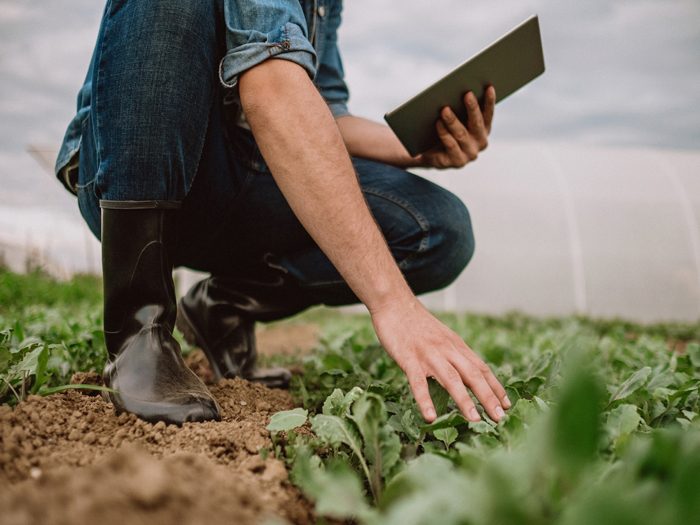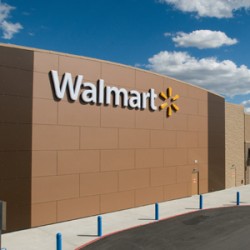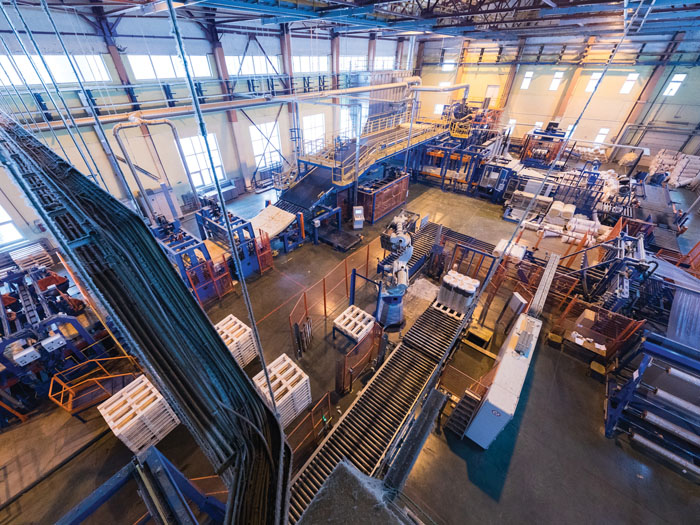Walmart Rolls Out Blockchain Initiative to Reduce Food-Borne Illness

After a nearly two-year blockchain pilot, Walmart announced in September 2018 it will require all its spinach and lettuce suppliers to adopt its blockchain system within the next year.
Walmart has chosen to do so, because food recalls have been on the rise, and they are costing the food industry billions of dollars per year in waste and lost inventory. Many experts say blockchain could reduce the losses by increasing transparency and making it easier to trace the source of contaminated food items.
The mega-retailer’s roll out of the technology could spur others in the industry to do the same — a move that would increase safety while reducing cost impacts on suppliers and retailers.
A Risk and Cost Burden for the Food Industry
Recalls are a growing problem and liability for the food industry. The Centers for Disease Control and Prevention report food-borne illnesses such as salmonella, listeria and E-coli now cause more than nearly 128,000 hospitalizations and 3,000 deaths annually.
According to the Stericycle Recall Index, food product illnesses have risen 93 percent since 2012. And a survey by the Grocery Manufacturers Association revealed more than half of grocers have been impacted by a food recall in the last five years.
“There are huge benefits in [this] kind of transparency. When you connect different people’s ledgers to each other without having them give up the sovereignty of it.” — Shiden Gouran, president and CEO of Gobal Blockchain Technologies
It’s growing to be one of the industry’s biggest threats to profitability. In April 2018, a farm in Indiana had to recall 200 million eggs sold in nine states over salmonella fears. And in the summer of 2018, millions of heads and bags of romaine lettuce were discarded when E. coli spread through 36 states.
Retailers and suppliers will often purge any suspected items, because the industry can’t always track the source of every food item. Most farms, processing facilities and distributors use their own reporting systems, limiting communication and traceability.
When the FDA issued new rules about recalls in September 2018, it also acknowledged a large problem is simply tracking foods in the supply chain.
“Identifying retail locations can be complex … It can involve obtaining information from multiple parts of the supply chain, including the recalling company and intermediate distributors,” said FDA Commissioner Scott Gottlieb, M.D., in a statement.
Experts say blockchain could enable them to better trade the origins of items and react to recalls more quickly. Blockchain, the technology behind Bitcoin, is a distributed ledger that enables all parties to contribute and share information but with a permanent record where no single party can change or alter the record.
Transparency and Traceability From Farm to Store
Walmart announced in September 2018 it will require its 100 supplier farms to join its food-tracking blockchain by the end of the year.
Sifting through the myriad of paper-based ledgers from suppliers and distributors can take the retailer’s team up to seven days to track where food products originated, said Frank Yiannas, head of food safety at Walmart on the company’s website. It’s a time-consuming, almost impossible task, when multiplying by tens of thousands of food items in a typical grocery.
“The food system is absolutely too large for any single entity to [track],” Yiannas said.
In August 2017, the retailer started The Food Trust blockchain pilot with IBM and suppliers such as Kroger, Nestle, Tyson Foods and Dole.
In one test last year, the company used blockchain to trace the origin in a package of mangoes in only two seconds, a process that would have taken nearly a week with the old system. Walmart is now extending blockchain capabilities and says it can enhance freshness, safety and transparency.
“We are digitizing attributes of food, so we can enhance how it flows from farm to table and run a safer, smarter and more sustainable food system,” Yiannas said.
Whereas many suppliers are reluctant to share proprietary information and processes, blockchain offers a commons where shared information can be accessed by all parties in an immutable record, says Shiden Gouran, president and CEO of Gobal Blockchain Technologies.
“There are huge benefits in that kind of transparency. When you connect different people’s ledgers to each other without having them give up the sovereignty of it,” Gouran said.
The blockchain system could also share certain information with consumers, enabling them to take more proactive measures and reduce risk for all. “In the future, a customer could potentially scan a bag of salad and know with certainty whether it was involved in a recall or not,” Yiannas said. &










